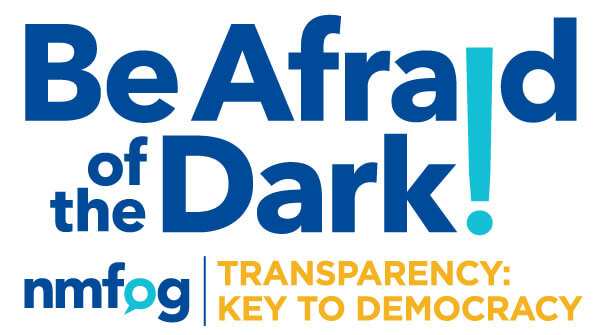All of my elementary aged grandchildren sleep with a nightlight because, like their parents a generation ago, they fear the dark. Although the flip of a switch can confirm that no monsters lurk in the shadows, better to keep a small light burning to cut through the darkness. What you cannot see fuels worry, distrust and general unease.
Sunshine Week starts Sunday, March 14, an annual reminder that at least in terms of government conduct, citizens should never outgrow their fear of the dark. Launched nationwide in March 2005, Sunshine Week educates the public about the importance of open government and the dangers of excessive and unnecessary government secrecy. It was organized by the American Society of News Editors (now known as the News Leaders Association) to coincide with James Madison’s birthday and National Freedom of Information Day on March 16th.

Freedom of information is not just for policy geeks. It is a fundamental right recognized by The Universal Declaration of Human Rights which placed it firmly within the body of universal human rights laws. The hallmark of a democratic society is access to information.
In conjunction with Sunshine Week, the New Mexico Foundation for Open Government (“FOG”), a nonprofit nonpartisan organization, is launching a 10-month campaign focusing on the link between democracy and a strong freedom of information culture. For 31 years, FOG has educated, advocated and litigated for open government in reliance upon New Mexico’s sunshine laws: the Inspection of Records Act and the Open Meetings Act. FOG has long recognized that transparency is more than a buzzword. Access to information is basic to the democratic way of life.
As recent events have illustrated, our democracy hangs by a thread. It requires constant vigilance, well-informed citizens and a robust press using the tools of public documents and public meetings. How else can government officials be held accountable and responsive to the people they serve?
There are innumerable examples where access to public records has shone a light on government misconduct. Perhaps best known is a police report of the break-in at a Washington D.C. hotel complex which led to the downfall of a United States president. New Mexico also has had its share of journalists and citizens shining a light on government:
- • Just a few months ago the New Mexico Supreme Court held in favor of a homeless man’s family who sought videotapes that showed his fatal shooting by police. The video lapels and other documents were kept under cover for more than a year before finally being released. Such opaqueness adds to lack of trust and support between the public and the police.
- • A weekly newspaper in the state sought and reviewed dozens of autopsy reports to determine its community had a major drug problem.
- • A committed citizen’s efforts to obtain technical information which allegedly supported the damming the last free-flowing river in New Mexico eventually resulted in the abandonment of the project.
- • An animal rights activist was persistent in her efforts to show how a state board’s policies resulted in the neglect and abuse of horses, cattle and other livestock.
- • Another weekly newspaper followed the money through public documents and uncovered a $1.3 million dollar loss due to how water credits were administered in its town.
- • A lucrative land development contract in one of the state’s major cities had to be aborted, an outcome a more transparent process with open committee meetings could have avoided.
- • Two mothers in the western part of the state fought the school system for documents showing why their charter-schooled teenagers could not attend prom at the local high school, a mission they pursued long after their children had graduated. They took the tenaciousness of soccer moms to a new level.
The list goes on. Every day FOG receives two to three phone calls for help with accessing public records or attending public meetings. Such callers, as well as FOG itself, are doing the work of democracy.
Throughout the year, look to your local newspaper or visit the FOG website, nmfog.org, to read about why openness and access to information are among the pillars of democracy in education, economic development, public employment, even sports—The Democracy Project: Be Afraid of the Dark.
In the meantime, open the windows and let in the light.
Susan Boe is a retired attorney and president of the board for the New Mexico Foundation for Open Government.
